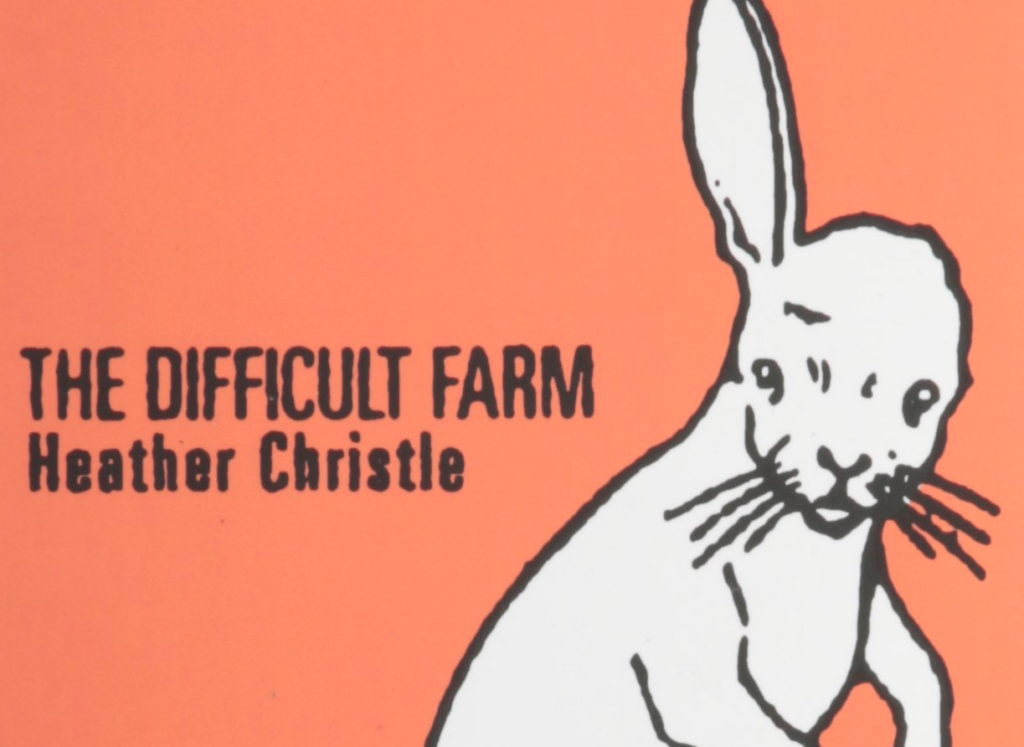Heather Christle, The Difficult Farm, Octopus Books, $12.00 (paper)
Heather Christle’s first collection, The Difficult Farm, marks the arrival of a powerful voice in younger American poetry. Gallows humor and a fascination with barnyard and other animals provide the collection with a light, whimsical tone that suits its dreamlike subject matter: “When I arrived at the motel room / the bear was already there, shivering, / because of the air conditioner / which we could not control.” Christle’s poems often reject conventional, received values and voice distrust in, or disregard for, technology, history, and medicine: “I love systems,” she writes, “like the weather, / and I love to adopt them on Monday and by Thursday / have renounced them altogether.” The poems in The Difficult Farm, like many of Christle’s peers’, are driven by free association rather than logical narrative, with transitions between thoughts and images often blurring together expressively. What distinguishes Christle’s work is her penchant for setting up our expectations and then dashing them, jolting us either into laughter or shock (“There are the growing / and the dying and then / there are your ribbons”), as well as the conviction, present throughout the book, that the imagination can never compensate for the fact that our lives are fleeting and there is no greater meaning beyond what we create. “Most of the world gets embroidered in the end,” she writes. “We know that. It’s a fact we carry around / like a small sack of seeds with a hole. / Most of our lives get forgotten.”





